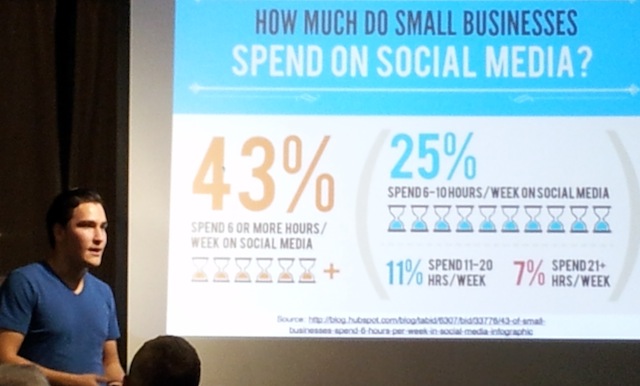Introduction
Overview of Roblox
Roblox is a leading online gaming platform and game creation system that allows users to design and share their own games while also playing games created by others. Since its launch in 2006, Roblox has become a global phenomenon, attracting millions of players and developers who contribute to its vast library of user-generated content. The platform offers a diverse range of experiences, from immersive role-playing games and fast-paced action games to relaxing simulation games and creative building adventures.
The ability to create and share games makes Roblox unique, fostering a community of developers and players who continuously innovate and expand the types of games available. This dynamic environment supports various types of player interactions and gameplay styles, making it a popular choice among gamers of all ages.
Introduction to Gaming Terminology
Understanding gaming terminology is essential for fully engaging with the gaming community and navigating online multiplayer environments. Acronyms and slang are commonly used in gaming to describe various actions, statuses, or behaviors. Terms like “AFK,” “NPC,” and “GG” are part of this specialized language that helps players communicate efficiently.
AFK, which stands for “Away From Keyboard,” is one such term. It is widely used across online gaming platforms to indicate that a player is temporarily inactive. Knowing and understanding these terms can enhance communication and coordination in multiplayer games, improve gameplay experiences, and foster a better understanding of game mechanics and community norms.
Understanding AFK
Definition of AFK
AFK stands for “Away From Keyboard.” It is a term used to describe a player who is temporarily not interacting with the game or chat due to being physically absent or distracted. The term originated from the early days of online communication, where users would step away from their computers but remain logged in.
In gaming, AFK is used to let other players know that someone is not actively participating in the game. This might be due to a short break, an emergency, or simply taking a pause from gameplay. The primary function of the term is to communicate to others that the player’s absence is temporary and that they will return shortly.
AFK in the Context of Roblox
In Roblox, AFK is used similarly to indicate that a player is not currently active. Given Roblox’s wide range of games and activities, the impact of being AFK can vary significantly depending on the game:
- Role-Playing Games: In games where players assume specific roles or characters, going AFK can disrupt the flow of the role-playing experience and affect other players who are depending on the AFK player for interaction or collaboration.
- Competitive Games: In competitive environments, AFK behavior can negatively impact team performance and game outcomes. Teams may struggle if a key player is missing, leading to frustration and potentially affecting game rankings.
- Casual and Simulation Games: In these games, AFK behavior might be less disruptive, as they often involve less intense interaction. However, it can still affect gameplay if the AFK player is involved in critical tasks or activities.
How AFK Affects Gameplay
Impact on Team-Based Games
In team-based Roblox games, AFK behavior can have several consequences:
- Team Dynamics: When a player goes AFK, it can disrupt the team’s coordination and strategy. Other team members might have to compensate for the missing player, which can be challenging and lead to imbalanced gameplay.
- Progression: In games that require collective effort to advance, such as strategy games or team challenges, AFK players can slow down or even halt progress. This can be particularly problematic in games with time-sensitive objectives.
Examples:
- In a Roblox team-based shooter, an AFK player might leave their team vulnerable, causing them to lose the match.
- In a cooperative Roblox adventure game, an AFK player might delay the completion of a quest or mission, affecting the whole team’s progress.
Influence on Game Mechanics
The game mechanics in Roblox can be affected by AFK players in various ways:
- Resource Collection: In games where players gather resources or complete tasks, AFK players might miss out on opportunities or fail to contribute, impacting the overall efficiency of resource collection.
- Objective Completion: For games with specific objectives that require active participation, AFK players might leave important tasks incomplete, affecting the game’s progression and potentially causing frustration among other players.
In-Game Consequences
Different Roblox games have their own systems to handle AFK behavior:
- Automatic Kicking: Some games are programmed to automatically remove AFK players after a certain period of inactivity. This helps maintain game balance and ensures that active players are not penalized by the absence of others.
- Negative Feedback: Players who frequently go AFK may receive negative feedback from other players. In some cases, repeated AFK behavior can lead to warnings or penalties imposed by game developers or moderators.
Managing AFK Status
AFK Features in Roblox
Roblox has several features to manage AFK behavior:
- Status Indicators: Some games include built-in indicators that show when a player is AFK. These indicators help inform other players and adjust expectations accordingly.
- Inactivity Timers: Games may have timers that detect when a player has been inactive for a certain period and take action, such as sending notifications or moving the player to an AFK zone.
Strategies for Managing AFK
For players who need to go AFK, there are strategies to minimize the impact on gameplay:
- Informing Others: Communicate your intention to be AFK to other players before stepping away. This helps manage expectations and allows your teammates to adjust their strategies.
- Utilizing Game Features: Use any available game features that can help mitigate the impact of being AFK, such as automatic actions or settings that keep your character active in some capacity.
Best Practices:
- Set Up Automated Actions: If the game allows, set up automated actions or movements to ensure that your character remains engaged while you are away.
- Adjust Settings: Use in-game settings to minimize disruptions, such as enabling “Do Not Disturb” modes if available.
Developer Tools and AFK Management
Game developers can implement various tools to handle AFK behavior effectively:
- Detection Systems: Develop systems that detect inactivity and respond appropriately, such as notifying other players or redistributing tasks.
- Encouraging Engagement: Design game mechanics that incentivize continuous participation, such as rewards for active engagement or penalties for prolonged inactivity.
Examples:
- Roblox Tycoon Games: Incorporate features that allow AFK players to slowly accumulate resources or progress while away, minimizing the impact on gameplay.
- Roblox Role-Playing Games: Implement systems to ensure that role-playing scenarios continue smoothly even if a player is temporarily absent.
Common AFK Scenarios in Roblox
AFK in Casual Games
In casual Roblox games, players might go AFK for various reasons:
- Short Breaks: Players may need to step away briefly without pausing the game, particularly in games that are less demanding in terms of constant interaction.
- Idle Time: Casual games often allow for more relaxed gameplay, where AFK periods are less disruptive.
Examples:
- Roblox Obby Games: Players might leave their character navigating an obstacle course while they attend to other tasks.
- Simulator Games: In games where characters perform repetitive tasks, AFK behavior can be common as players allow their in-game characters to continue working.
AFK in Competitive Games
In competitive Roblox games, AFK behavior can have significant effects:
- Impact on Rankings: AFK players can negatively affect team performance and game rankings, leading to imbalanced matches and frustration among competitors.
- Competitive Balance: To address AFK issues, competitive games often implement features to detect and manage inactive players.
Strategies:
- Penalty Systems: Implement systems that penalize frequent AFK behavior to discourage players from going AFK during competitive play.
- Engagement Rewards: Design game mechanics that reward active participation and discourage prolonged inactivity.
AFK in Social or Role-Playing Games
In social or role-playing games, AFK behavior can influence interactions and gameplay:
- Social Disruption: AFK players can disrupt ongoing social interactions or role-playing scenarios, affecting the experience for other players.
- Role Impact: In role-playing games, an AFK player may leave their role unfilled, impacting the overall experience for others involved in the scenario.
Examples:
- Roblox Role-Playing Communities: AFK players might disrupt storylines or character interactions, causing delays or inconsistencies in the role-playing experience.
- Social Hangouts: In games designed for social interaction, AFK players can interrupt the flow of conversations or group activities.
Dealing with AFK Players
For Game Developers
Game developers can use various tools and techniques to manage AFK players:
- In-Game Notifications: Implement notifications to inform players when someone is AFK, helping to manage expectations and adjust gameplay accordingly.
- Automated Systems: Use automated systems to handle AFK behavior, such as moving players to designated AFK zones or redistributing tasks.
Techniques:
- Dynamic Management: Create systems that adapt to AFK behavior, adjusting game difficulty or task assignments to ensure a balanced experience for active players.
- Feedback Mechanisms: Allow players to report AFK behavior and take appropriate action based on feedback.
For Players
Players can address AFK behavior in various ways:
- Communication: Politely communicate with AFK players to understand their situation and adjust gameplay as needed. This can help avoid misunderstandings and improve teamwork.
- Reporting Tools: Utilize in-game reporting tools to notify developers or moderators of problematic AFK behavior, contributing to a better gaming environment.
Tips:
- Clarify Expectations: Set clear expectations with teammates regarding AFK behavior, ensuring everyone is on the same page.
- Provide Constructive Feedback: Offer feedback to game developers on AFK-related issues to help improve game management and design.
Conclusion
Summary of Key Points
AFK, or “Away From Keyboard,” is a term used to indicate that a player is temporarily inactive. In Roblox, AFK behavior can have varying impacts on gameplay depending on the game type, including effects on team dynamics, game mechanics, and in-game consequences. Understanding these impacts and implementing strategies for managing AFK behavior can enhance the overall gaming experience.
Encouragement for Effective Gaming
Maintaining effective gaming practices, including managing AFK scenarios, is crucial for a positive and enjoyable experience. By being mindful of AFK behavior and its implications, players can contribute to a more balanced and engaging gaming environment.
Invitation to Explore More
Explore additional features and community guidelines within Roblox to further enrich your gaming experience. Roblox offers a wealth of opportunities for creative and social interaction, and understanding terms like AFK helps in navigating the platform more effectively.


